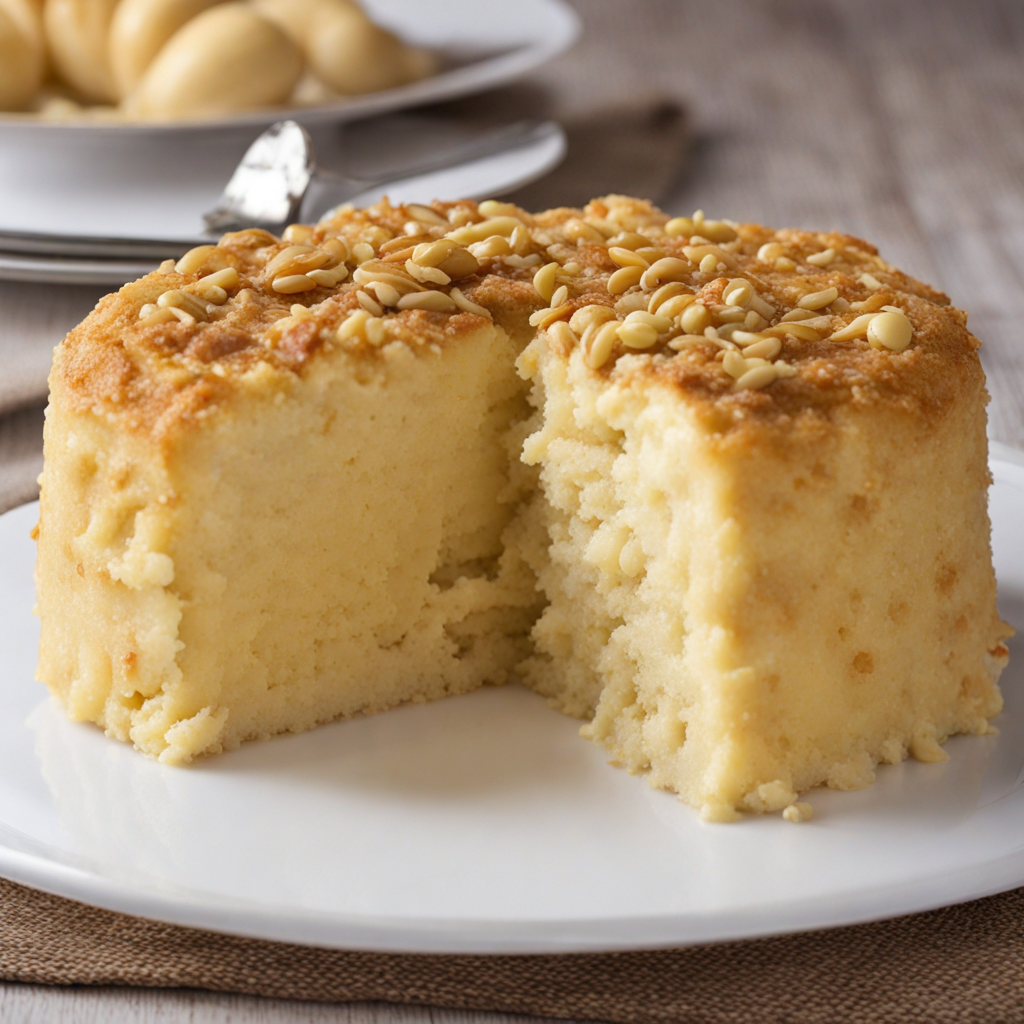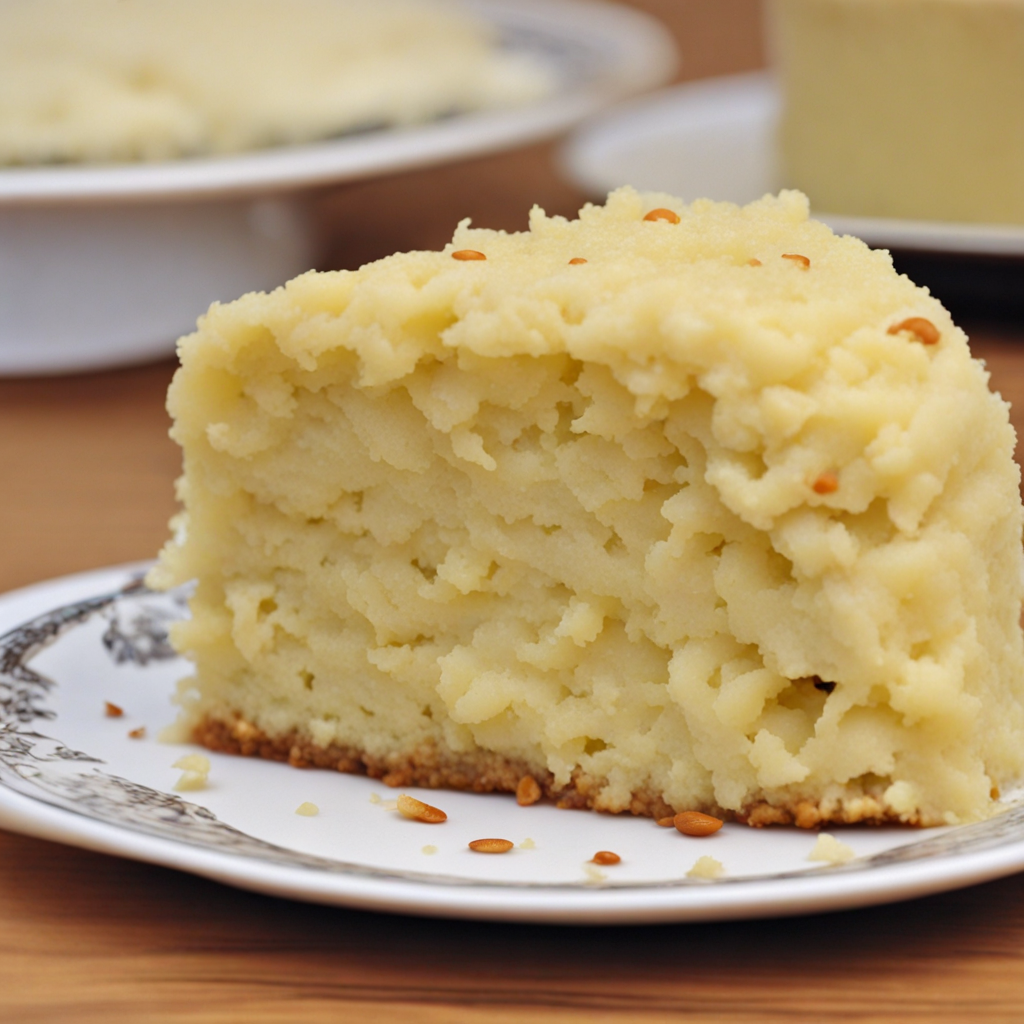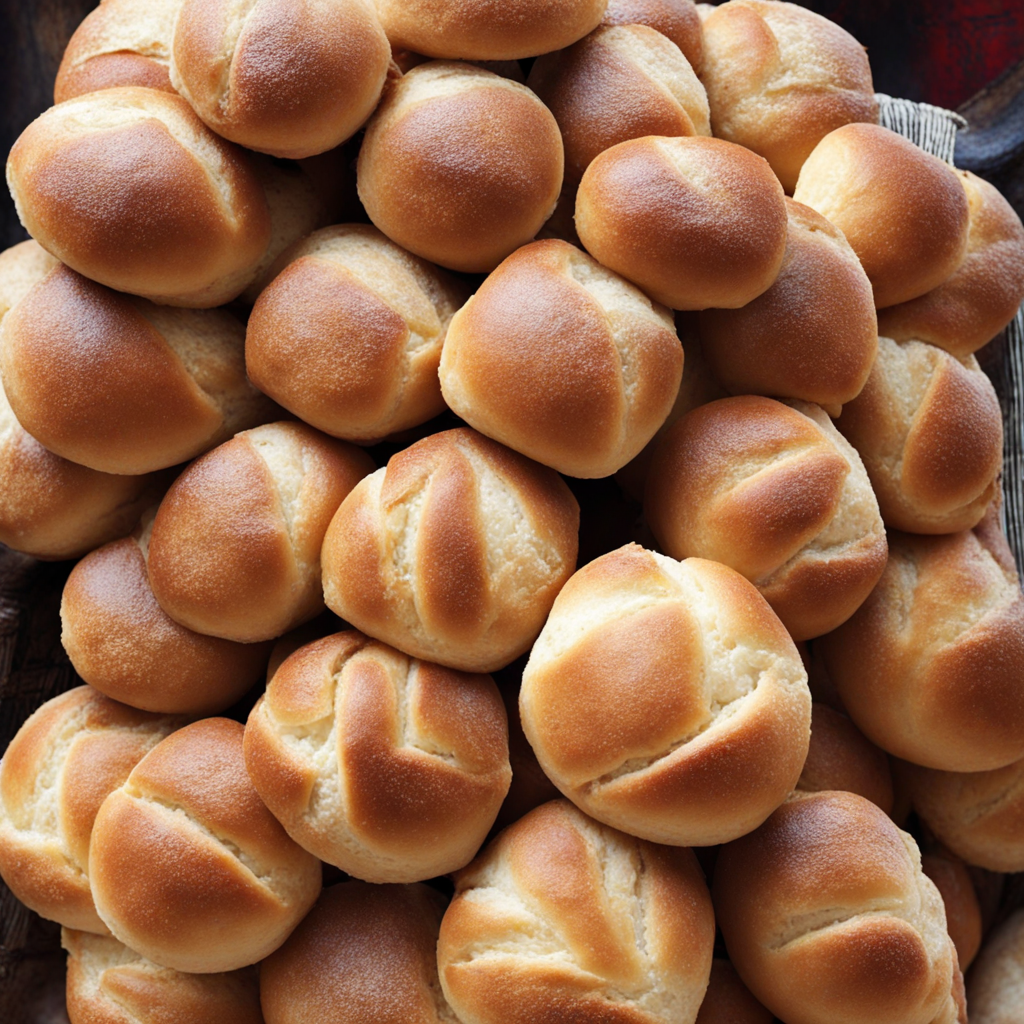Bolo Polana
Bolo Polana is a traditional cake from Mozambique, often celebrated for its rich flavor and unique texture. This delightful dessert is particularly popular in the northern regions of the country, where it reflects the culinary influences of both the indigenous people and Portuguese colonizers. The cake is not just a sweet treat; it embodies a piece of Mozambique's cultural heritage, often served during festive occasions, family gatherings, and celebrations. The origins of Bolo Polana can be traced back to the early 20th century when the fusion of African and Portuguese culinary practices became more pronounced. The cake is believed to have been inspired by the classic Portuguese almond cake, yet it has evolved into a distinctively Mozambican dish. The name "Polana" is derived from the Polana neighborhood in Maputo, the capital city of Mozambique, which is known for its affluent lifestyle and vibrant culture. Over the years, the cake has gained popularity beyond local borders, becoming a beloved symbol of Mozambican cuisine. Bolo Polana is characterized by its moist and dense texture, which is achieved through a careful balance of ingredients. The primary components include ground almonds, which provide a nutty flavor and a fine crumb, making the cake rich and indulgent. Sugar and eggs are also crucial in the preparation, contributing to the cake's sweetness and structure. In some variations, grated coconut is added, enhancing the flavor profile and providing a tropical note that is synonymous with Mozambique's coastal heritage. The preparation of Bolo Polana
How It Became This Dish
Bolo Polana: A Sweet Journey Through Mozambique's Culinary Heritage Origins of Bolo Polana Bolo Polana, a delightful almond cake, has deep roots in the culinary landscape of Mozambique, a country located on the southeastern coast of Africa. The history of this beloved dessert is intricately tied to the nation’s colonial past, cultural exchanges, and the diverse influences that have shaped its cuisine. The cake is primarily made from ground almonds, sugar, and eggs, resulting in a rich and moist texture that is both indulgent and comforting. The origins of Bolo Polana can be traced back to the 19th century when Mozambique was under Portuguese colonial rule. The Portuguese brought with them a wealth of culinary traditions, including the use of almonds, which were cultivated in the Mediterranean climate of the region. Almonds, known for their versatility and nutritional value, became a staple ingredient used in various sweets and pastries across the country. The incorporation of local ingredients and techniques transformed these Portuguese desserts into uniquely Mozambican delights, with Bolo Polana standing out as a prime example. Cultural Significance Bolo Polana holds a special place in the hearts of Mozambicans, often appearing during celebrations, festive occasions, and family gatherings. Its significance transcends mere nourishment; it embodies the spirit of togetherness and the sharing of heritage. The cake is a symbol of hospitality, frequently served to guests as a gesture of goodwill. In traditional ceremonies, such as weddings and religious observances, Bolo Polana is often featured prominently, reinforcing its role as a cultural touchstone. The cake's name, 'Bolo Polana,' can be roughly translated to 'Polana Cake,' with 'Polana' referring to an affluent suburb of Maputo, the capital city of Mozambique. This association with a particular area adds to its cultural significance, as it is often linked with urban sophistication and modernity while still being rooted in traditional baking practices. Moreover, Bolo Polana represents the fusion of different cultures in Mozambique. The country has a rich tapestry of ethnic groups, including the Shona, Makua, and Tsonga peoples, each contributing to the nation's identity. The incorporation of Portuguese culinary traditions into local practices is a testament to Mozambique's ability to blend influences and create something distinctly its own. Bolo Polana is not just a dessert; it is a narrative of resilience, adaptation, and cultural evolution. Development Over Time As Mozambique evolved through the 20th century, so did Bolo Polana. The struggle for independence from Portuguese colonial rule, which culminated in 1975, brought a sense of national pride and a renewed interest in indigenous culinary practices. During this time, traditional recipes were preserved and celebrated, with Bolo Polana emerging as a symbol of national identity. The cake became a gateway for many Mozambicans to reconnect with their roots, and its popularity surged in both urban and rural areas. The recipe for Bolo Polana has remained relatively consistent over the years, reflecting the importance of tradition in Mozambican culture. However, variations have emerged, with bakers experimenting by incorporating local flavors and ingredients. For example, some recipes include coconut or lime zest, adding a tropical twist to the classic almond base. This adaptability has allowed Bolo Polana to remain relevant in contemporary culinary practices while honoring its historical roots. In the late 20th and early 21st centuries, Mozambique experienced significant changes in its economic landscape, leading to increased globalization and the influx of new culinary influences. The rise of tourism introduced Bolo Polana to international audiences, turning it into a culinary ambassador for Mozambique. Chefs began to showcase the cake in upscale restaurants, highlighting its cultural significance and elevating its status to that of a gourmet dessert. The cake's popularity has also burgeoned in the diaspora, with Mozambican communities around the world embracing Bolo Polana as a means of maintaining their cultural identity. Cooking classes, social media, and food blogs have played crucial roles in disseminating recipes and stories about the cake, allowing younger generations to connect with their heritage. This transnational exchange has further enriched the narrative of Bolo Polana, as it continues to inspire variations and adaptations influenced by local ingredients and tastes in different countries. Modern-Day Bolo Polana Today, Bolo Polana is celebrated not only in Mozambique but also in culinary circles globally. Its simple yet elegant presentation and the lush flavor of almonds make it a favorite at various gatherings, from casual family dinners to formal events. The cake is often dusted with powdered sugar or served with a drizzle of syrup, showcasing its versatility as both a comforting home baked good and a sophisticated dessert. In Mozambique, Bolo Polana is often paired with tea or coffee, making it a delightful treat at any time of the day. The cake's texture, resembling that of a dense sponge, allows it to absorb flavors beautifully, making it a perfect canvas for various accompaniments such as ice cream or fresh fruit. Additionally, the emphasis on locally sourced ingredients, including the use of organic almonds, is reflective of a growing trend toward sustainable and ethical eating practices. As Mozambique continues to navigate its post-colonial identity, Bolo Polana remains a vital part of the national narrative. It serves as a reminder of the resilience of a culture that has weathered the storms of history while preserving its culinary heritage. The cake encapsulates the essence of Mozambique's rich and diverse history—a sweet reminder of the past that continues to delight palates today. Conclusion Bolo Polana is more than just a dessert; it is a celebration of Mozambique's unique cultural heritage, its historical transformations, and the enduring spirit of its people. As it continues to evolve in contemporary kitchens and on the global stage, Bolo Polana stands as a delicious testament to the power of food to connect us to our roots, our communities, and our shared histories. Whether enjoyed at a family gathering in Maputo or celebrated in a distant land, Bolo Polana invites everyone to savor the flavors of Mozambique’s rich culinary tapestry.
You may like
Discover local flavors from Mozambique







